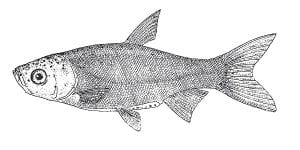U.S. Senators Amy Klobuchar and Al Franken and Representatives Keith Ellison, Erik Paulsen, and Tim Walz have introduced legislation to help fight the spread of Asian carp in Minnesota’s waterways. The legislation would kick-start the process to consider closing the Upper St. Anthony Falls Dam to help stop the spread of the invasive species, as well as require immediate closure if Asian carp are found.
In addition, the bill would direct federal agencies to partner with Minnesota on efforts to root out infestations and prevent the spread of Asian carp in the state’s rivers. Klobuchar and Ellison authored the bill in the Senate and House, respectively, and Franken, Paulsen, and Walz are original cosponsors. The legislation is supported by Governor Mark Dayton and the Minnesota Department of Natural Resources.
“The spread of Asian carp in our state’s rivers would have a disastrous ecological impact and harm Minnesota’s recreation and fishing industries that are so important to our state’s economy,” Klobuchar said. “It is vital that we take action to stop the spread of this invasive species, and this legislation will help the state protect Minnesota’s waterways.”
“We’re very pleased with this legislation. The DNR is a strong advocate for creating barriers in the Mississippi River and possibly other rivers to stop Asian carp from getting into our inland lakes and rivers. The discovery of a silver carp in the Mississippi River near Winona last week enforces the need for faster action, and we believe this legislation is the kind of action we need to protect our waterways,” said Minnesota Department of Natural Resources Commissioner Tom Landwehr.
The bill also calls for increased interagency cooperation to help
root out infestations and prevent the spread of Asian carp in Minnesota’s waterways. Specifically, the bill directs the Council on Environmental Quality (CEQ) at the White House to incorporate the Upper Mississippi River, the Minnesota River, and the St. Croix River into the Asian Carp Control Strategy Framework. It would also encourage various government agencies to cooperate with states and local non-profits to research technologies to disrupt the breeding cycle of Asian carp and to remove Asian carp from areas they currently infest.



Loading Comments